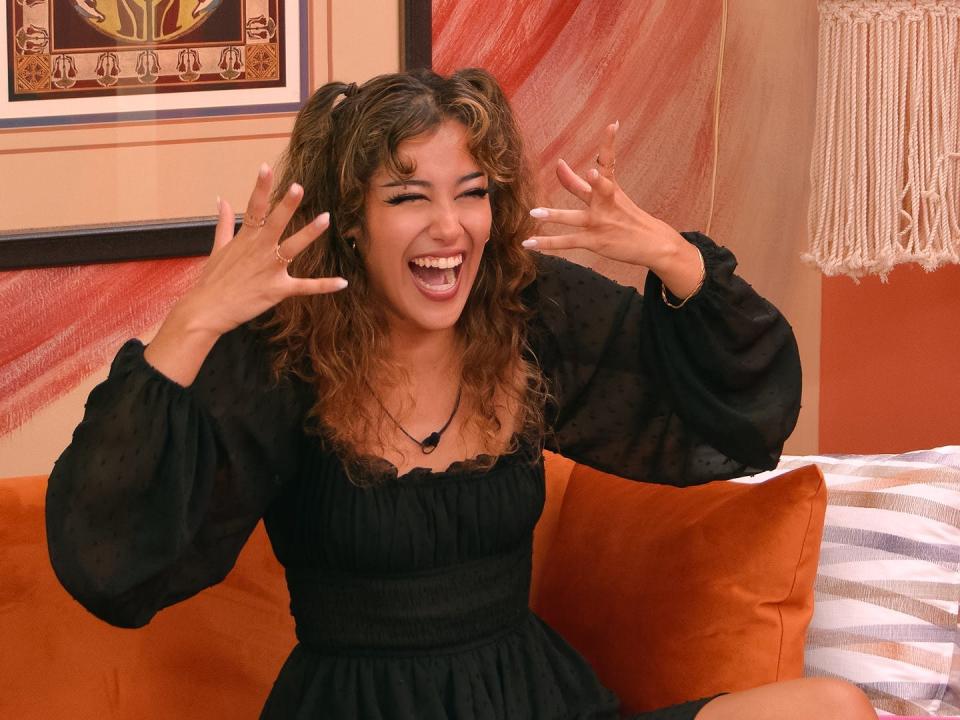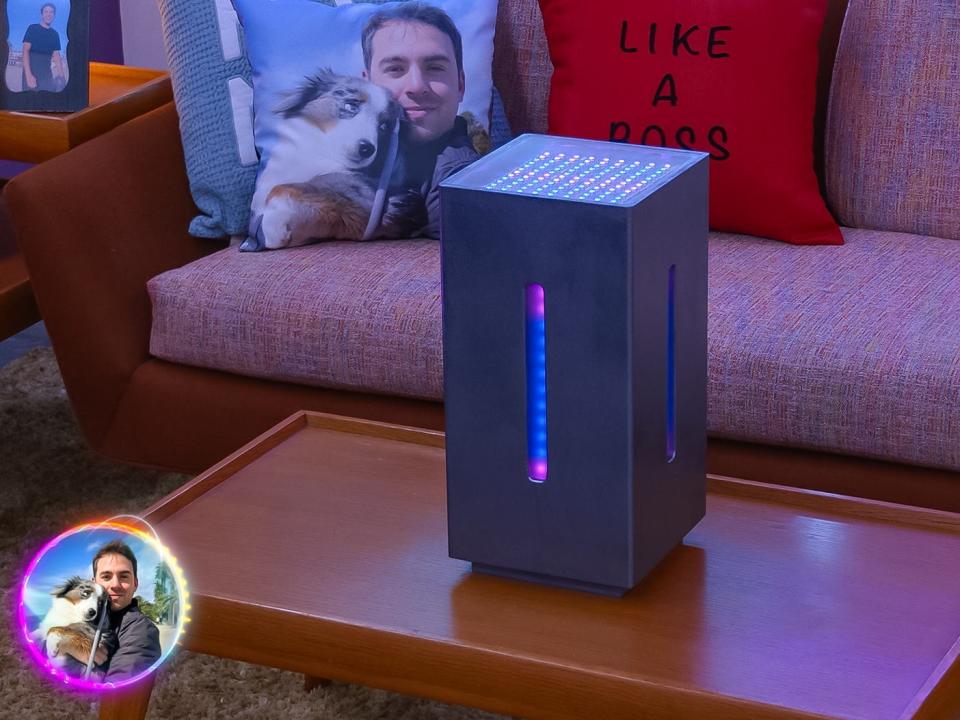'The Circle' used an AI player to create a bot witch hunt — and soon, we might all be defending our humanity online too
Max is the first AI contestant on "The Circle" — he's literally a chatbot.
Max is pretty boring, but having an AI in the game turned it into a robot witch hunt.
Unfortunately for us, this sort of thing is already starting to happen in real life too.
Netflix's "The Circle" tends to lean more asinine than Asimov — but including an AI player who can chat it up with the best of them is the most science fiction twist the game has pulled so far.
The show, a British import that Netflix launched in 2020, is ostensibly a commentary on social media. Players can only interact with each other through a chat interface, meaning that they can present themselves in whichever way they'd like as they scheme their way to becoming the most popular player at the end of the game and winning $100,000.
"The Circle" feels like little more than a competition (albeit a rather entertaining one). But bringing an AI player into the mix reflects some of the future online trials we're likely to face — and some that are already happening.

"The Circle's" AI player is Max, a chatbot masquerading as a 26-year-old veterinary intern from Wisconsin who describes himself as an "animal whisperer with a knack for making bad pottery, no cap." He's got a nice face (courtesy of comedian Griffin James, who's being a very good sport) and a cute dog named Pippa. If all of that isn't enough to clue you in, he's boring and safe as hell. And when the other players learn that there's a bot in their midst (without knowing who), they don't turn on him. They turn on each other.
"The Circle" ratchets up the tension through challenges that require players to rank each other on a scale from most to least human or prove their humanity by uploading photos of moments when they felt "alive." Messy accusations ensue, which 35-year-old podcaster Steffi takes the brunt of after proving that she has an encyclopedic knowledge of astrology (these people don't have any friends who can provide horoscopes on demand?).

At the risk of being cliché, Max's inclusion in the game says much more about us as humans than the current capabilities of chatbots, though he performs admirably. The players in "The Circle" react viscerally to the idea of being threatened by a bot and even more viscerally to accusations that they are one. And unfortunately for all of us, this kind of stuff is already happening.
Since the rise of chatbots like ChatGPT, which was created by OpenAI, people have voiced concerns about students using it to cheat on their classwork by making it write essays or do research for them. Look at this wild graph my colleague Alistair Barr published last September that shows search interest in ChatGPT plummeting over the summer when students were out of school.
On the flip side, some schools have eschewed AI detectors — which OpenAI itself has said could be faulty — because they may lead to false accusations that students used chatbots to complete their work. Look at this guide that The Washington Post published in August 2023 about what to do if you're accused of using AI to cheat! Folks have been worried about stealth chatbots on dating apps like Tinder for years. And as Business Insider previously reported, social media is rife with spammy AI-generated content reliant on ChatGPT. Hell, if you want to opt-in to chatbot relationships, you can do what my colleague Katie Notopoulos did and go on dates with them.
I'm not really here to litigate how AI language learning models are becoming more or less sophisticated, or more human. But what "The Circle" shows is that their simple presence, and potential for deception, puts all of us under the lens.
Of course, the show is an extreme environment: Players don't meet each other face to face, and they interact in fairly limited ways within the parameters of a specific game. Max was able to study past seasons of "The Circle," according to the bot's narration in the show, and for the most part, didn't behave more bizarrely than any human.
In the real world, we can use further context clues to evaluate the humanity of those we interact with online. Do they have a new account with three followers and keep spamming replies that try to redirect users to porn links? Probably a bot. But in specific instances where written text is king — such as college papers — it's not hard to see how false assumptions made by humans can lead to painful accusations. It's quite literally already happening at universities.
"The Circle" can't commit fully to the bit. After Myles, who is coincidentally an AI engineer (self-driving cars, not chatbots), is voted in as the "most human" player, he goes with the majority opinion and eliminates Steffi the astrologer. She is, of course, human and unhappy about the bot accusations — but the decision still results in her removal from the game.
Disappointingly, Max then also removes himself, revealing that he was the droid the players were searching for.

Perhaps producers decided they had put the players through enough psychological warfare, or maybe Max's zingers like "my social algorithms are initiated and ready to mingle" were too powerful for television. Whatever the reason, Max made for one of the most memorable parts of the show — even though he was the most boring player.
"The Circle" finale airs Wednesday on Netflix.
Read the original article on Business Insider


